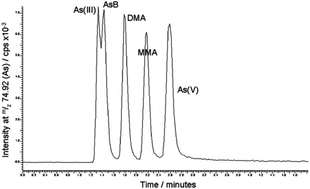Monolithic chromatography in speciation analysis of metal-containing biomolecules: a review
Abstract
Monolithic supports are efficient stationary phases for most of the important chromatographic separation modes. They can be applied for the chromatographic separation of biomolecules, nanoparticles, proteins, peptides, nucleic acids and low molecular mass organic acids. At the industrial level, monolithic chromatography is frequently used for the purification of large plasmids and bacteriophages. Despite their high potential and simplicity of hyphenation to different mass spectrometric detectors, monoliths are rarely employed in elemental speciation analysis. The present overview extends over the applications of monolithic supports for chromatographic separation of a given chemical element species present in different biological samples where they were efficiently used as an alternative to commonly applied particle-packed chromatographic columns. The performances and applicability of monolithic supports in speciation analysis are discussed and the need for further investigations in this area emphasized.

- This article is part of the themed collection: Speciation Analysis

 Please wait while we load your content...
Please wait while we load your content...